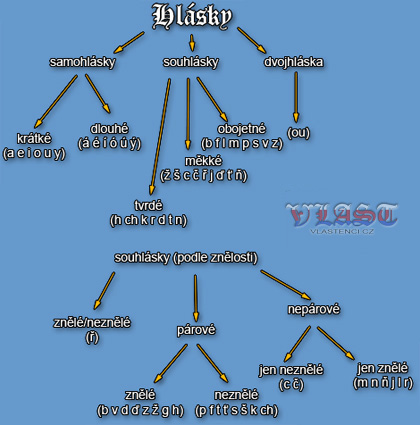 Hi Everyone,
Hi Everyone,
Besides the fact that my Czech vocabulary has decreased quite a bit (read my article on “Let’s talk Czenglish “), I also keep realizing that the longer I live in the States the more often I find myself struggling with the Czech grammar. I always thought: “That would never happen to me!”, and here I am, thinking if the word “vikend” (weekend) is written with “y” or “i”. Or do I say “tvuj sesit” or “svuj sesit” (both expression mean “your notebook”)? I find myself repeating these expressions over and over in my head to see if one or the other will “click” as (hopefully) the correct version. How about you, what do you struggle with? Share your experience in the following poll:
PS: Those readers who are not native Czech speakers but are in the process of learning this beautiful language, what part of the Czech grammar do you struggle with ? Go ahead, tell us by leaving a comment!
CZ: Ahoj! Dnesni tema diskuze je ceska gramatika – tedy tema dosti smutne, co se tyce mne, osobne. Nejen ze se mi slovni zasoba snizila temer na minimum (prectete si me zazitky v clanku “Pojdme se bavi v Cenglictine”), ale take ta gramaticka pravidla se mi zacinaji vytracet z mozku. “To se mne nikdy nestane!!”, rikavala jsem si. Ale, chyba lavky!! Mnohokrat samu sebe nacapam, jak si v hlavne neustale opakuji jedno a to same slovicko, jako je treba slovo “stromecky”; rekne se “Koukni, stromecci!” nebo “Koukni, stromecky!”. Pak si v hlavne musim projit menatlni procvickou: ” Stromecek, bez stromecku..to je jako hrad bez hradu..takze “Koukni, hrady!” by udelalo ze stromecku “Koukni, stromecky!” Po 10-ti minutach tezkeho premysleni jsem tedy pripravena vypustit z pusy ta spravna slova, ale to uz stromecky (!!) bohuzel davno zmizely z dohledu. Pravidla, ktera se v minulosti stala nudnou samozrejmosti, uz takovou samozrejmosti bohuzel nejsou :o(. A co vy, cim “trpite” nejvic? Vyjmenovanymi slovy? Nebo privlastnovacimi zajmeny? Pochlubte se v nasledujici ankete:





with 3 results in, koncovky are out ahead – as foreseen. My fellow students have about given up on koncovky, nasty creatures that they are. Also, to think of perfective vs imperfective or determinate vs indeterminate status of a verb. This creates long pauses in sentence structure when attempting to speak Czech.
Every Friday there is an article written by an American in the Czech Republic. Today’s article is about learning Czech, funny coincidence.
http://praguemonitor.com/2009/02/13/half-n-half-transformation-monolingual-american
to Michal: yes, I voted for koncovky too!!!
To Jana: How interesting! I sense some mind-reading here 🙂
Yes, that’s what I also have trouble with! I also have trouble with the 7 cases of each noun…that one’s really hard for me!
Hi Sher!
Yes! That is another “zakopany pes” :((
Why did the Czechs make it so hard on themselves?? Who came up with this horrendous grammar???
My answer will not count since it is all of the above. I think it was Jan Hus who thought of carky and hacky. Constantine/Cyril and Methodej who thought of the seven cases; based on Greek and then Frantisek Palacky who when there wasn’t a Czech word for something he got a Russian or Slavic word and made it Czech. I’m sorry they are all dead Tanjo.
That is a great Czech language history mini-overview. I did do my Czech-style SATs from the Czech language but I could not put it all together like you did. Thanks!